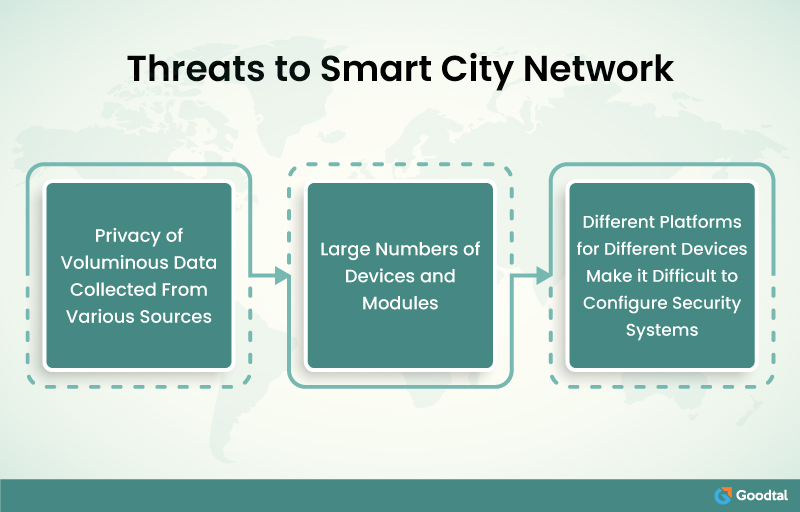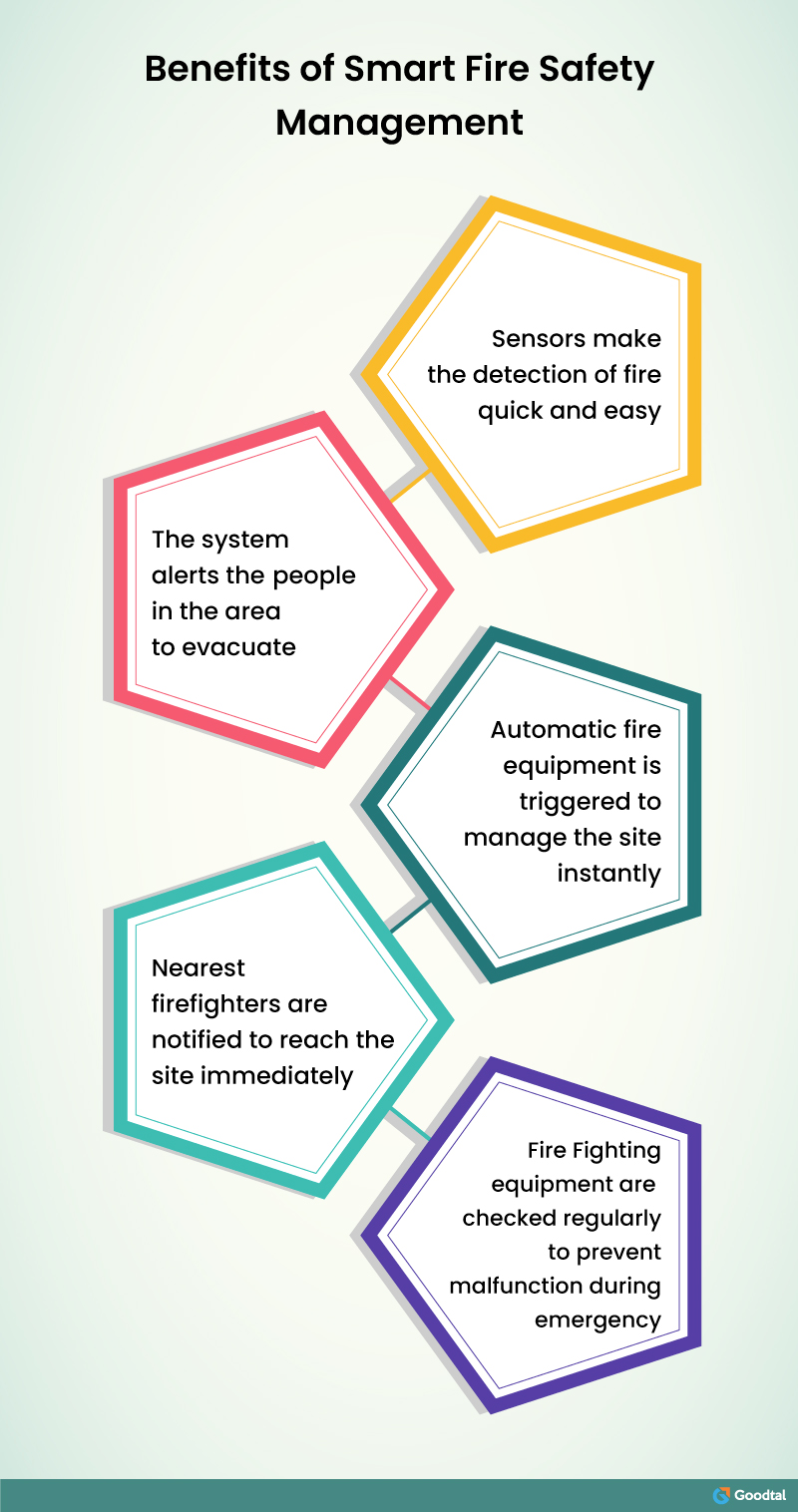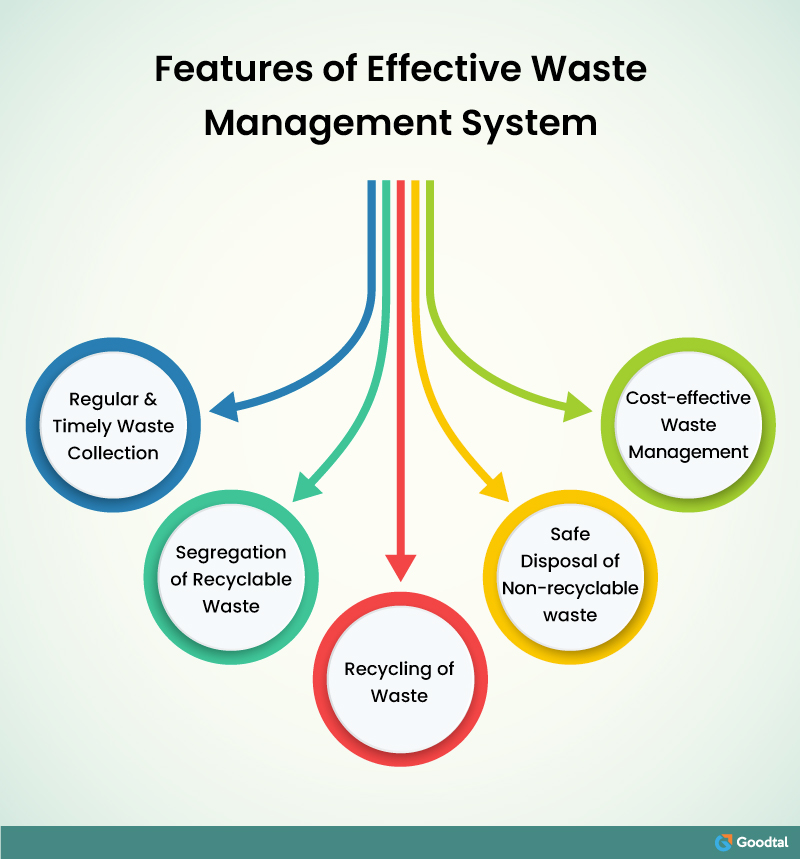
Managing large cities with high populations is challenging in every country. However, technology-driven Smart Cities are now being developed to address the challenges.
In simple terms, a smart city is about better management of infrastructure and urban services that are made available to the users at the click of their smartphones. As the concept suggests, smart management of cities makes it easy for the administration to manage the services and for the users to avail of these services conveniently.
However, this is not all. If we evaluate from the perspective of businesses, IoT-based smart cities offer very high scopes for businesses developing infrastructure, devices, and mobile apps. The statistics here can convince you of how large the market is expected to be and why businesses must leverage the power of IoT.
“The global Smart Cities Market size to grow from USD 457.0 billion in 2021 to USD 873.7 billion by 2026, at a Compound Annual Growth Rate (CAGR) of 13.8% during the forecast period.”
Why Do We Need Smart Cities?
Smart cities offer their citizens ease of accessing day-to-day amenities, security facilities, etc. The smart city also reduces the challenges citizens face in their everyday lives dealing with poor quality systems and services. Over and above, smart cities are so organized that in the long run, when they are all set, they can be more cost-effective than regular and conventional cities.
Smart cities are environmentally, socially, and economically sustainable as they have all the relevant data available and analyzed for better coordination of systems, infrastructure, services, and devices with the citizens.
Role of IoT in Smart Cities
While most technologies influence only a specific section of society, the Internet of Things has a large userbase owing to its wide range of applications. Internet of Things has transformed cities by connecting the infrastructure and operations through various devices and sensors. This system collects large volumes of data from the so many devices connected to it. Collecting and analyzing such large volumes of data can give valuable insights that can be used to manage the system effectively.
IoT and communication technologies, when working together, make the coordination of people, operations, services, and devices easy. It thus increases the system’s capacity and efficiency manifold.
IoT helps the city administration monitor and manage utility services, traffic, transportation systems, water and electricity supply, waste and drainage, information systems, safety, healthcare systems, etc. They have access to data, enabling them to plan short- and long-term.
What Makes Your City Smart?
What makes a city smart deserves to be a topic for debate as the definition of smart city changes from zones to cultures. However, most of the time, the needs and challenges of huge cities worldwide are similar, ranging from traffic blues to housing issues, etc. Here are the parameters that make your city smart.
High-Speed Wireless Internet Connectivity
We all know the value of high-speed wireless internet connectivity. However, wireless internet connectivity is not just an option; it invariably is the backbone of a smart city as all the systems and devices are connected in a network. The systems cannot exchange data or issue notifications in real-time if the connectivity fails. So, the smart city's efficiency depends on wireless network connectivity.
The scale of wireless internet connectivity is also very large in smart cities. Thus, real-time high-speed wireless connectivity can be considered one of the crucial parameters of IoT that drives its success in developing smart cities.
Secured Network

Large cities have a huge span making it difficult to achieve network security. IoT-based smart city network has large volumes of data. The data of the systems and citizens, if compromised, can pose a threat to every module, device, and individual in the smart city.
Thus, a smart city invariably requires that the network is robust and secure with no scope for breach, hacking, or data leaks.
Privacy is important, and most states have stringent laws for data privacy for their citizens. Smart cities should ensure that though the systems are operated digitally, and so much data is automatically collected from the devices, it should not breach the privacy of the citizens. Unauthorized access to such confidential data can increase criminal activities, making it difficult for citizens to live peacefully. It is also a challenge for law and order administrators.
IoT-based smart cities rely on tough network security protocols, multi-level access controls, sensors to detect invasion, encryption protocols, etc., to ensure safety and privacy. The system actively scans any unusual activity and blocks unauthorized access to data and systems. It can also raise the alarm and notify the authorities about the location of the hacker or the spot where there is a suspected security breach.
Smart cities have robust data management with automated backup and restoration facilities. Artificial Intelligence keeps tough surveillance of such systems to help the officials detect, diagnose and counter any attacks on the system and its security.
Fire Safety Management
Fire safety management is a small but significant area of smart city management implemented through IoT. In such systems, fire sensors are used to detect any fire at any public or private place and inform the authorities immediately. Such alarms automatically trigger the fire extinguisher equipment to manage the situation before the firefighters reach. Also, the nearest ambulance services are alerted automatically to reach the incident's site and rescue the affected citizens. With smart management, preemptive measures can be taken to avert a possible fire calamity. In case of unforeseen circumstances leading to fire accidents, the consequences and damages can also be reduced to a minimum.

Smart Waste Management
Waste Management is a severe concern for big cities. Cities with large populations and large spans have volumes of waste added daily. Collection, transport, and safe disposal of waste are challenging. Cleanliness of the city and hygiene are significant aspects of urban dwellings.

Smart waste management enables fully automatic waste management operating throughout the city. It starts with waste collection from different places. It also tracks the waste bins to detect when they are full. The network then sends alerts to the nearby collection van, which reaches the site and clears the garbage bin. If human intervention is minimum, there is a minimal scope of error, delay, or negligence, and the system can function interrupted.
Similarly, smart systems can separate recyclable waste and send it to the recycling plant for processing. The recycled material is then sent for further use. In the process, recyclable waste is put to the best possible use. Furthermore, the system is quick with just-in-time functionality due to the real-time coordination of the system with devices and transport. It is therefore cost-effective.
Smart Water Management
Water management is the parameter that directly influences the quality of life in cities. Effective water management ensures water availability at all times by compensating the high-demand zones whenever there is excess demand. This requires comprehensive planning and management.
Another challenge is a proper distribution that ensures no area is left out and there is no wastage of water. Smart water management uses IoT with smart analytics to gauge the demand and notify the system in real-time. It can also detect sources of leakage or fault and alert the authorities; they can correct the issue in no time once they know the source of the fault.
Smart water management also checks water quality by performing regular and scheduled testing and sending alerts if contamination is detected. It can monitor consumption to generate water bills, detect faults to notify authorities, perform quality tests, and ensure regular supply throughout the city.
Smart Traffic Management
Everyone knows about self-driving cars and the risks and threats that they could pose. Internet of Things can eliminate or considerably reduce such risks by connecting the traffic management system of the area to all these self-driving cars so that these can work in harmony with each other. If all the area's traffic is managed through one system, one car knows the moves and presence of another. The pace of a car can be adjusted to counter any risks. So, while two strangers in different vehicles cannot communicate in a risky traffic situation, the system can prevent accidents.
Going further, in such a system, as the rules are programmed in the system itself, the vehicles cannot break the rules. Thus, traffic management is easy by using the right sensors and eliminating human weaknesses and errors. Nevertheless, there will not be drunk drivers creating traffic havoc with an IoT traffic management system and self-driving cars.
Smart traffic management ensures traffic monitoring, suggesting the best routes depending on low traffic congestion, accident prevention and detection, preventing traffic jams, etc.
Wrapping Up!
As the world embraces technology, Smart Cities will grow. More and more research is being carried out to identify the areas that IoT can help improve as the system is already connected to the network, and there is hardly any problem scaling it further.
Latest technologies, modern devices, appliances, robust networks, and the people make IoT-based smart cities the best places to live. However, smart cities need the best IoT developers to develop such vast and robust networks. These also offer huge scopes for businesses such as hardware developers, mobile app developers, security system developers, etc. So, mobile app development businesses must welcome the Smart Cities trend; it offers them a huge potential to learn, develop, and become a part of the amazing IoT!
